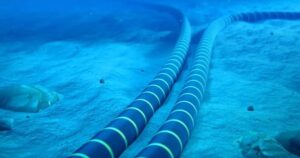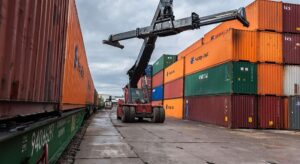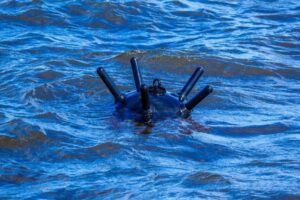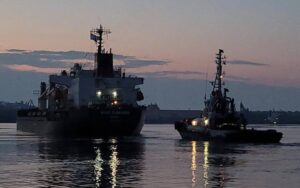
The business community, united by the American Chamber of Commerce in Ukraine (the Chamber), calls on international partners to immediately increase air and sea defense over Ukraine, particularly the Odesa region and critical Black Sea port infrastructure.
Russia continues to destroy and humiliate American businesses in Ukraine. Russia’s recent missile and drone attacks targeting Ukraine and the Odesa region
The current situation poses a direct risk of disrupting global food and commodity supply chains, with far-reaching consequences for international markets and food security, including higher food prices and worsening hunger in vulnerable countries.
While it is difficult to estimate the real-time losses of grain and oilseed exporters, they are currently estimated at hundreds of millions of dollars per month. Without substantial strengthening of air and maritime defense systems, both Ukrainian and international businesses will face critical operational challenges, including the inability to charter vessels and obtain insurance coverage for vessels, crews, and cargo.
The Chamber calls on international partners to urgently strengthen Ukraine’s air and maritime defense in order to save civilian lives, ensure the security of critical infrastructure, ports, and the continuity of global trade and food supply chains.
https://interfax.com.ua/news/press-release/1129438.html
AMERICAN CHAMBER OF COMMERCE, BLACK SEA, PORT INFRASTRUCTURE, UKRAINE

Vodafone Group and Ukraine’s second-largest mobile operator, VF Ukraine (Vodafone Ukraine, VFU), will begin construction of a new high-speed submarine cable system in the Black Sea, creating a digital corridor between Europe and Asia, according to a company release on Monday.
It is noted that the Kardesa submarine fiber-optic communication network will connect Ukraine, Bulgaria, Georgia, and Turkey. The first cable landing is planned in Bulgaria in 2027, followed by Turkey, Georgia, and Ukraine.
In a Telegram channel, First Deputy Prime Minister and Minister of Digital Transformation Mykhailo Fedorov specified that the project budget is over EUR100 million.
The mobile operator added that the general contractor for the project will be Xtera, a company that implements high-performance turnkey underwater telecom solutions and builds and commissions advanced underwater cable systems in more than 60 countries around the world.
“One of the key points of our Strategy for the Development of Electronic Communications until 2030 is to build more international Internet highways to create a sustainable Internet in Ukraine,” Fedorov emphasized.
According to him, thanks to this communication line, the Black Sea region will receive an additional 500 terabits/s of Internet bandwidth.
“Submarine cables provide 97-98% of international Internet traffic, so this project is important for the development of the digital ecosystem of the entire region,” Fedorov wrote.
The first deputy prime minister specified that the project will ensure digital sovereignty and the stability of telecommunications infrastructure, investments in the telecom sector, high-speed and secure internet for Ukrainians, and will also serve as a link in internet traffic between Europe and Asia, bypassing Russia.
As reported, Vodafone Ukraine reduced its net profit by 13% in the first half of 2025 compared to the same period last year, to UAH 1.705 billion, while its revenue grew by 15%, to UAH 13.518 billion.
In the first half of the year, the company increased its investments by 66% compared to the same period in 2024, investing more than UAH 3.5 billion in critical infrastructure, and in total, over 3.5 years of full-scale war, investments in Ukraine reached almost UAH 19 billion. In the structure of investments in the first half of this year, 51% is accounted for by the construction and restoration of the network, as well as its preparation for operation during blackouts, 31% – network maintenance, 11% – fixed communications development, and 4% – the billing exchange program.
Vodafone Ukraine has been part of NEQSOL Holding since December 2019.

Turkey, Romania, and Bulgaria on Monday launched a joint mine-sweeping operation in the Black Sea to improve shipping safety, especially during the export of Ukrainian grain, Bloomberg reports.
The publication noted that the Istanbul-led initiative is the first major joint action by the Black Sea countries since Russia’s invasion of Ukraine in February 2022 and focuses on clearing mines drifting in certain areas of the Black Sea as a result of the war.
“Russia and Ukraine are key grain producers, and the war has jeopardized the safe passage of goods. Kyiv launched its own Black Sea export route last year after the failure of a secure corridor agreement backed by Russia, Turkey and the United Nations. It has successfully boosted exports and helped the economy grow faster than forecast, but the route remains risky,” Bloomberg writes.
Among the major maritime losses, the publication named a Russian missile attack near the key Ukrainian port of Odesa on a merchant ship, killing the captain and other crew members, as well as a ship hired by Cargill Inc. that was damaged in November by an explosion while leaving a Ukrainian port in the Black Sea.
Ukraine said in March that exports from its Black Sea ports had almost returned to pre-war levels after repeated attacks and disruptions following Russia’s full-scale invasion. However, ports around Odesa frequently face strikes from Russia that continue to interrupt operations, Bloomberg recalled.

Ukraine has resumed container transportation through the Black Sea: a ship with containers entered one of the ports of Greater Odesa, Chornomorsk, on April 3, the Odesa-based Dumskaya newspaper reported.
According to the report, the pioneering vessel was the T Mare, which flies the Panamanian flag. It is not classified as a container ship, but a vessel for the transportation of general cargo.
The publication noted that this is not yet a full-fledged specialized vessel, but a so-called feeder, which will be loaded with containers and then sent to a foreign hub for further transshipment to ocean container ships of global container lines.
According to MarineTraffic, a provider of ship tracking and maritime analytics, the vessel left Chornomorsk for the Romanian port of Constanta.
The T MARE is a containerized cargo vessel flying the Panamanian flag. Its total length (LOA) is 105 meters and width is 17 meters.
As reported, in March, the Ministry of Community Development, Territories and Infrastructure announced that in early April, Odesa ports would receive the first container ship since the beginning of the war.

Turkey, Romania, and Bulgaria will sign a joint agreement in January 2024 to counter the mine threat in the Black Sea, Turkish National Defense Minister Yashar Güler said, TRTHaber reported on Saturday, December 16.
“Within the framework of the Trilateral Initiative, launched under the leadership of our country against the mine threat in the Black Sea, on November 22-23, we held the third round of the meeting of the Task Force on Mine Action in the Black Sea, hosted by our ministry. We are also planning to hold a signing ceremony in Istanbul on January 11, 2024, with the participation of the defense ministers of the three countries,” said Yasar Güler.
The minister emphasized that Turkey responsibly and impartially implements the Montreux Straits Convention, which ensures balance in the Black Sea, and is determined to continue to do so.

EU Diplomacy Chief Josep Borrell says the events in Ukraine threaten global food security, and the EU will discuss with the UN Secretary General the prospect of reviving the “grain deal”.
“This affects all countries, but especially the weakest and poorest. In August 2022, the UN played a crucial role in mitigating this suffering through the Black Sea Grain Initiative. However, in July, Russia decided to abandon this agreement,” Borrell wrote in his blog post, looking ahead to the UN General Assembly’s High Level Week that opens in New York.
“We will discuss with UN Secretary General Guterres ways and means to revive it. Sustainable development goals are in the focus of the UNGA,” said the EU High Representative for Foreign Affairs.